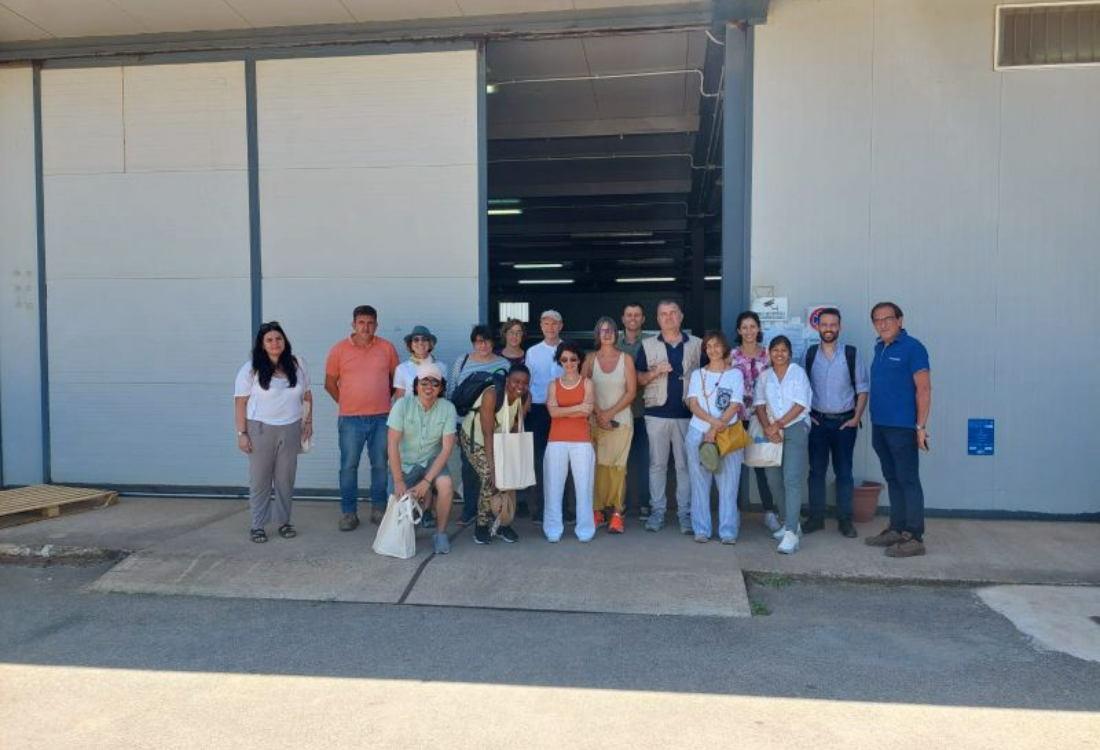
Unlocking the Potential of Agricultural Digitalization: A Visit to CODECS Living Lab
Written by: Mehdi Hassan Mohammadi, Harika Meesala and Felicitas Okoye
Recently, we had an opportunity to visit one of the living labs of the CODECS project where we explored the potential of technological innovations in agriculture, especially their importance in organic farms. The project CODECS (maximising the CO-benefits of agricultural Digitalization through conducive digital Ecosystems) is a four-year Horizon Europe project, co-ordinated by the University of Pisa. The project gathers 33 partners across Europe and aims to increase the motivation and capacity of the European farmers to adopt digitalisation as an enabler of sustainable and transformative change. It operates with a network of 21 living labs across Europe, and these living labs provide valuable information regarding the impacts of digital technologies on policymaking. The project aims to harness the power of digitalization to maximize agricultural productivity while minimizing its environmental impact with the integration of cutting-edge technologies in farming. This approach not only increases efficiency but also enables farmers to make data-driven decisions, leading to improved resource management and reduced ecological footprint.
As a part of the project, we visited one of the living labs located in Bari, Italy. The living lab focuses on organic table grape cultivation with the introduction of a Decision Support System (DSS) for irrigation management. During our one-day visit, we visited the grape orchard that has introduced sensors strategically all over the orchard to measure the weather and soil parameters. One of such parameters is evapotranspiration and based on this value, the advice is being given to the farmer regarding the need for irrigation.

The collected data from the sensor network are transferred to a data analytics platform that can be accessed by the farmer to get updates regarding the need for irrigation and other interventions. This platform processes vast amounts of information, providing farmers with real-time recommendations for optimal water management actions.
We had a fruitful interaction with the farmer, technology provider, and the other stakeholders of the living lab. Our discussions resulted in a good overview of the perceptions of the stakeholders regarding the costs and benefits of the DSS in the context of organic table grape cultivation. We also understood the challenges faced in the adoption of the technology and how the stakeholders try to overcome them.
In addition, we visited the packaging warehouse of the farm. As it is true that post-harvest management in organic farming is quite challenging, it was fascinating to see how the farmer tackled this issue by putting a unique packaging material, a blue valve that exchanges CO2 with ozone/oxygen applied to the package’s film to extend the shelf-life of the organic grapes.

A 3D printer can create this blue device with a variety of materials (plastic, bioplastic). For the introduction of all these technologies, the farmer established a strong collaboration with the local and regional universities, research institutions, and technological companies. From this, we understood that collaboration is the key to overcoming the challenges in technological adoption and the development of trust between the stakeholders.
Overall, the visit resulted in a comprehensive understanding of the impacts of agricultural digitalization from a living lab perspective. As researchers, we aim to acknowledge the concerns of the stakeholders to promote evidence-based policymaking. Thanks to CODECS, we are stepping further every day in the process of analyzing the costs and benefits of agricultural digitalization.

